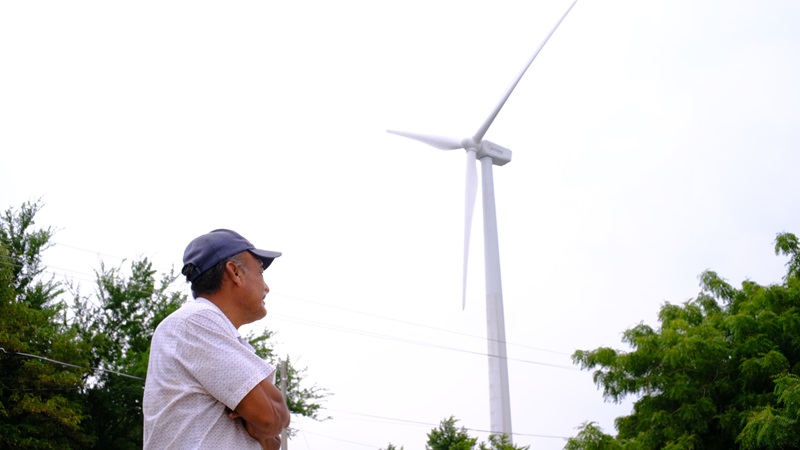Claudia Sheinbaum will have to deal with violent divisions over wind power projects on the Isthmus of Tehuantepec
Following years of violence surrounding one of Latin America’s largest wind energy projects, local residents in southern Oaxaca state are cautiously optimistic that Mexico’s incoming president understands their anger over what they call poor consultations and environmental damage.
Claudia Sheinbaum will be sworn in as Mexico’s first female president on October 1 with a broad electoral mandate. Before entering politics, she was a scientist studying renewable energy, including the ongoing conflict over wind farms on the Isthmus of Tehuantepec. The tensions have spawned deadly violence, and lawsuits from Oaxaca City to Paris.
One of Mexico’s windiest areas, energy companies have flocked to the strip of land between the Gulf of Mexico and the Pacific Ocean since 2006, making it one of the most important locations for renewable energy in the world’s 13th largest country.
Sign up to get our weekly newsletter straight to your inbox, plus breaking news, investigations and extra bulletins from key events
Supporters say projects like this are crucial for transitioning Mexico away from fossil fuels and creating green jobs based on renewable energy. Opponents are concerned about wind turbines harming migratory birds, land access, revenue sharing and – most importantly – problems related to Indigenous community consultations over the investments.
Bloody conflict
In several cases, anger over the projects has turned bloody, including at least 15 killed in a dispute over the wind farms in 2020.
Today, more than 2,000 turbines cover the land, according to data from Amnesty International, leading to “dispossession” and violations of the “collective rights of Indigenous communities”, the rights charity says. Hundreds of millions of dollars have been invested in the projects, mostly by European energy companies.
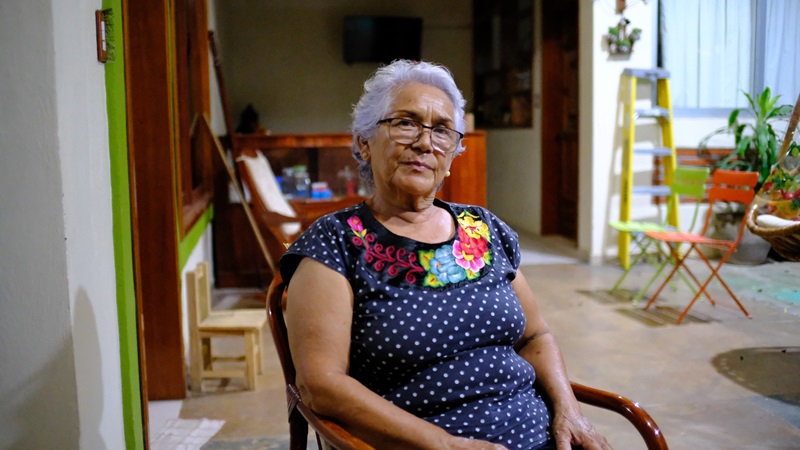
Anti-wind farm activist Guadalupe Ramirez poses for a picture inside her home in Union Hidalgo, Mexico. (Leon Pineda/Climate Home)
Anti-wind farm activist Guadalupe Ramirez poses for a picture inside her home in Union Hidalgo, Mexico. (Leon Pineda/Climate Home)Guadalupe Ramirez is an Indigenous Zapotec farmer who grows pumpkins and corn on a communal plot in the town of Union Hidalgo, a hub for wind energy. She told Climate Home that “at first, they (wind companies) said they would just take a little piece of the land but they ended up destroying a big piece”.
“The companies started dividing families,” said Ramirez, who also complained about local environmental disruption from the projects. “We were very mad about this. I have hope with Sheinbaum.”
Ramirez expects the new president and former Mexico City mayor may have some unique insights on the problems her community faces. The academic turned politician co-authored a study analysing the unrest over wind projects in Oaxaca state.
“Although wind energy has numerous benefits, [the] concerns of the local people have to be taken seriously,” Sheinbaum wrote in 2016. “Far from the old-fashioned thinking of looking at social acceptance of renewable technologies as a NIMBY (not in my backyard) problem… information, consultation, and participation are key elements to the success and acceptance of wind farm projects.”
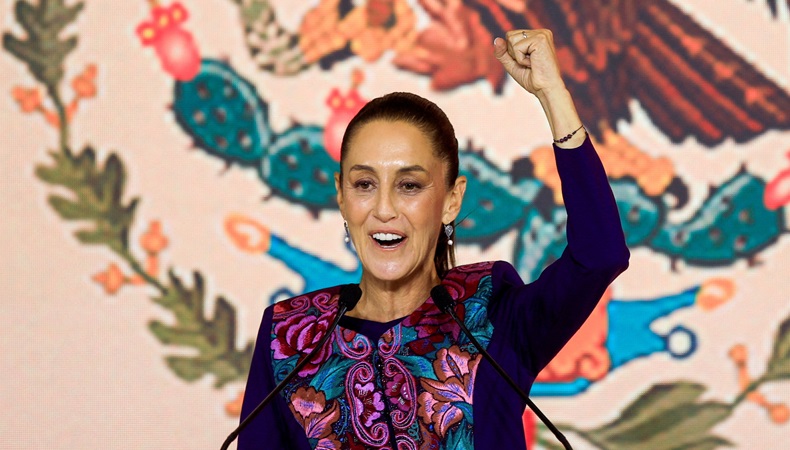
Sheinbaum celebrates her election victory in Mexico City on June 3, 2024. (REUTERS/Raquel Cunha TPX)
Those are exactly the elements Ramírez and many of her neighbors say were missing when they were first approached by energy companies back in 2009.
From there, the conflict escalated, said Carlos Lopez, who has experienced it firsthand. As an activist and community journalist in Union Hidalgo, he said he was threatened by masked men toting automatic weapons. He suspects they were hired by landowners or corrupt local politicians who wanted windmills erected in the area in order to receive rent from companies.
“They were killing people here,” Lopez told Climate Home, during an interview in a crumbling building which had been a community radio hub in Union Hidalgo as it underwent renovations.
In 2013, for instance, he said local fishermen and hunters were working in an area near Union Hidalgo coveted by wind investors, when they were accosted by masked men with heavy weapons. The fishermen then fled to the radio station, so Lopez could broadcast what was happening.
Deadly violence
“They [investors and their supporters in government] don’t respect the vision and culture of the original peoples of the Isthmus and want to push through these megaprojects,” said Lopez, sitting on a plastic chair next to pictures of Che Guevara and posters for protest movements.
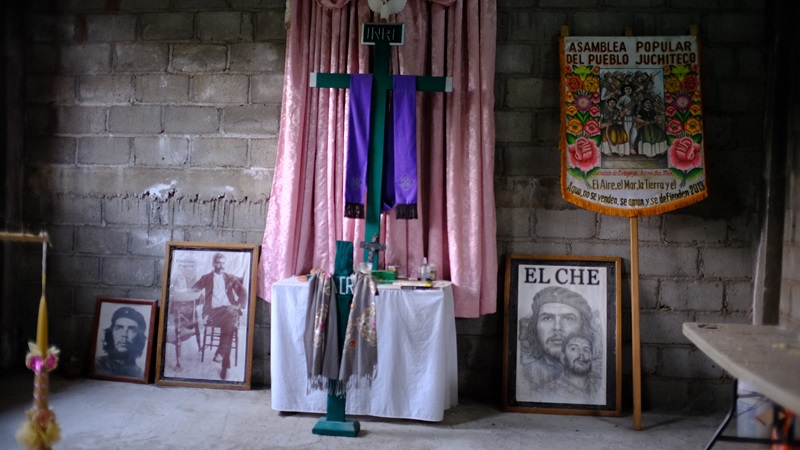
Posters are displayed inside a community radio station in Union Hidalgo (Picture: Leon Pineda)
Residents later set up barricades around six areas they considered sacred sites to stop encroachment by companies, he added, as threats continued and violence simmered.
In 2020, for instance, at least 15 people were killed in San Mateo del Mar, a coastal community in Oaxaca and a hotbed of Indigenous opposition to wind projects. Campaigners said they were stopped at a coronavirus checkpoint and shot at by supporters of a local mayor who backed the wind projects.
Last month, a French court allowed a civil case against the energy giant EDF to proceed after Indigenous people in Oaxaca argued the company failed to prevent violence and intimidation of wind farm opponents.
The violence has quietened down in the past few years due to national government policy changes and several court cases limiting new wind investment in the area, said local residents, including both critics and supporters of the projects.
Opposition is “political”
Not everyone in Union Hidalgo is opposed to the wind farms. On a rainy Saturday on his mango, avocado and guava farm, Dueter Toledo Ordonez told Climate Home: “These projects aren’t bothering me.”
“Some people don’t like it,” he said, with wind turbines in the distance, “but it’s all political … It’s clean energy; it’s the future.”
His father, who farms a nearby plot, had a contract with an energy company to install windmills on his land, added Ordonez, “but something happened with the politics and people said they were polluting” so the company stopped construction.
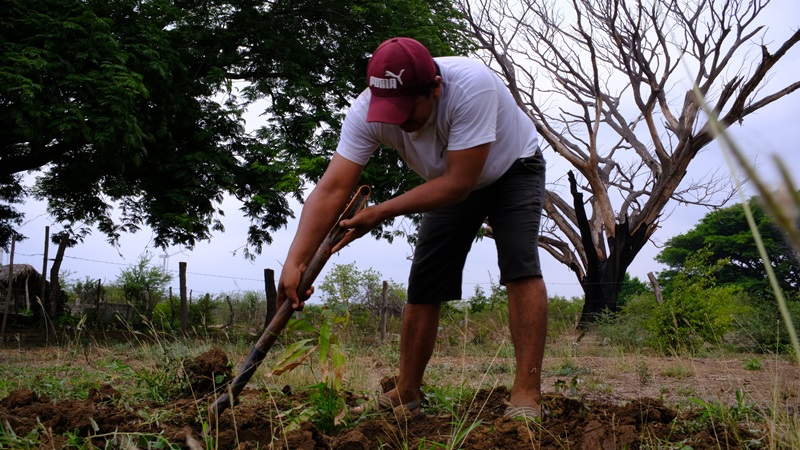
Deuter Toledo Ordonez tends to crops on his land in Union Hidalgo on June 8, 2024. (Photo: Leon Pineda)
Juqulia Elizabeth Lopez Ruiz, a spokesperson for the secretary of renewable energy for Juchitan district, told Climate Home the 28 wind parks in Tehuantepec bring a lot of jobs.
But she acknowledges some farmers aren’t happy about the projects. “To respond to these concerns: we have Indigenous assemblies where we decide the correct way to act with these wind farms,” she said.
As for concerns raised by wind farm opponen
Read More
